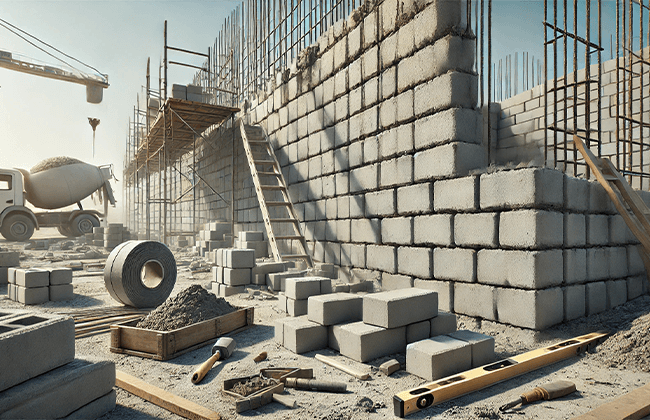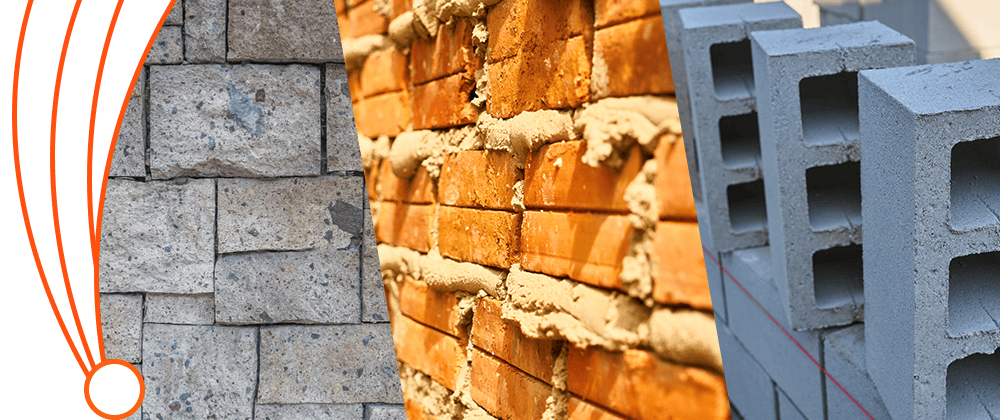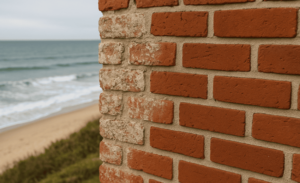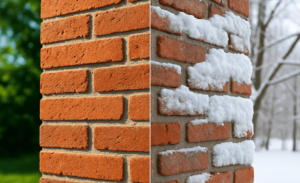Concrete blockwork is crucial in modern construction due to its strength, durability, and versatility. Whether you are constructing a commercial building, a residential structure, or even a landscape feature, concrete blocks offer a range of benefits for different project needs. Understanding the various types of concrete blockwork is essential to choosing the suitable material and method for ensuring longevity and structural integrity.
This comprehensive guide will discuss the various types of concrete blocks, their specific uses, and the key advantages of each type. We’ll also explore how blockwork construction has evolved, becoming more efficient and environmentally friendly while meeting structural demands.
What is Concrete Block Work?
Concrete block work uses precast concrete blocks joined with mortar to build walls, foundations, or other structural elements. The blocks are manufactured in various shapes, sizes, and densities for different construction purposes. Blockwork is valued for its strength, cost-effectiveness, and fire resistance, making it a preferred choice in building projects across the globe.
Types of Concrete Blocks Used in Construction
Concrete blocks come in several types, each designed for a specific use. Here are the most common types:
1. Solid Concrete Blocks
Solid concrete blocks are the most robust type, made from dense aggregates like sand, gravel, or crushed stone. These heavy and sturdy blocks offer high load-bearing capacity, making them suitable for foundational work, structural walls, and areas requiring extra durability.
Key Characteristics:
- High strength: Able to support heavy loads, making them ideal for building foundations and load-bearing walls.
- Thermal insulation: Solid blocks offer better heat retention compared to hollow blocks, which can help in temperature control for buildings.
- Durability: Resistant to harsh weather conditions and fire.
Uses:
Commonly used in load-bearing walls, foundations, and basement walls where structural strength is critical.
2. Hollow Concrete Blocks
Hollow blocks are lighter than solid blocks and feature hollow spaces that reduce their weight while maintaining strength. These blocks are highly versatile and often used in non-load-bearing walls, but they can also be used for load-bearing structures when appropriately reinforced.
Key Characteristics:
- Lightweight: Easier to handle and install, which speeds up the construction process.
- Insulation properties: The hollow spaces can be filled with insulation materials to enhance thermal performance.
- Cost-effective: Due to the reduced raw materials, hollow blocks are often more economical than solid blocks.
Uses:
Used in partition walls, boundary walls, and sometimes in load-bearing walls when combined with additional reinforcement.
3. Aerated Autoclaved Concrete (AAC) Blocks
AAC blocks are made from a mixture of cement, lime, fly ash, and water, then autoclaved to form lightweight, porous blocks. They are highly energy-efficient and offer excellent insulation properties, making them a popular choice in eco-friendly construction.
Key Characteristics:
- Lightweight: Significantly lighter than standard concrete blocks, making them easy to transport and install.
- High thermal insulation: AAC blocks are ideal for energy-efficient buildings due to the air pockets within the block.
- Soundproofing: Their porous nature also makes AAC blocks great for sound insulation.
- Environmentally friendly: Made using industrial waste materials like fly ash, AAC blocks are eco-friendly.
Uses:
Commonly used in interior and exterior walls, especially in residential construction, where thermal efficiency and eco-friendliness are essential.
4. Concrete Lintel Blocks
Lintel blocks are designed for building lintels—horizontal support beams placed over doors, windows, and other openings. They are made with cavities designed to hold steel reinforcing rods and concrete, which helps create a reinforced structure capable of bearing significant loads.
Key Characteristics:
- Reinforcement-friendly: The design of lintel blocks allows for easy integration of steel bars for reinforcement.
- Load-bearing: Strong enough to support structural loads over openings in walls.
- Versatile: Combined with other block types to strengthen the building’s framework.
Uses:
Ideal for constructing lintels above windows, doors, and garage openings, ensuring the structural integrity of walls around these areas.
5. Split-Faced Concrete Blocks
Split-faced blocks are a type of decorative concrete block used in building façades and walls where aesthetics are essential. These blocks are split after moulding, creating a rough, stone-like texture.
Key Characteristics:
- Aesthetic appeal: Offers a decorative, natural stone look while maintaining the strength of concrete.
- Durability: Weather-resistant and long-lasting, making them ideal for exterior use.
- Low maintenance: Requires little upkeep while providing a unique architectural appearance.
Uses:
Commonly used in exterior walls, boundary walls, and landscaping projects where both durability and aesthetics are required.
6. Concrete Paving Blocks
Concrete paving blocks, or pavers, are precast units used for paving surfaces such as driveways, walkways, and patios. These blocks are designed to be laid in an interlocking pattern, which distributes loads and prevents movement.
Key Characteristics:
- Interlocking design: Enhances the strength and stability of paved surfaces.
- Versatility: Available in various colours, sizes, and shapes, allowing creative paving designs.
- Durable: Resistant to high loads, weathering, and wear, making them ideal for driveways and paths.
Uses:
Best suited for paving driveways, walkways, patios, and landscaped areas.
Advantages of Using Concrete Block Work in Construction
Concrete block work is not just versatile but also offers several advantages in modern construction:
1. Strength and Durability
Concrete blocks are robust and ideal for constructing load-bearing walls and foundations. Their durability ensures they can withstand extreme weather, moisture, and fire.
2. Cost-Efficiency
Concrete blocks are relatively inexpensive compared to other building materials like bricks or stone. Hollow blocks, in particular, reduce raw material usage while maintaining structural integrity, making them a cost-effective option for large-scale construction projects.
3. Energy Efficiency
Blocks like AAC and hollow blocks can be enhanced with insulation materials to improve a building’s thermal efficiency. This can lead to significant energy savings by reducing heating and cooling costs.
4. Versatility
Concrete blocks come in various shapes, sizes, and densities, allowing for flexibility in design and function. They can be used for everything from structural walls to decorative features and paving.
5. Fire Resistance
Concrete blocks are naturally fire-resistant, making them a safer option for building construction. This is particularly important in structures where fire safety is concerned, such as schools, hospitals, and residential buildings.
Conclusion
Understanding the types of concrete block work and their specific applications is essential for selecting the suitable material for your construction project. From solid blocks that provide exceptional strength to AAC blocks designed for eco-friendly and energy-efficient buildings, each type offers unique benefits suited to different building needs. By choosing the appropriate block type, you can ensure that your structure is both durable and cost-effective while meeting the latest standards in construction.
FAQs
Q: What is the difference between solid and hollow concrete blocks?
A: Solid blocks are dense and heavy, ideal for load-bearing walls, while hollow blocks are lighter, with voids that reduce weight and improve insulation.
Q: Are AAC blocks more eco-friendly than traditional concrete blocks?
A: Yes, AAC blocks are made using industrial waste and offer better thermal insulation, making them a more eco-friendly option for sustainable construction.
Q: What are split-faced concrete blocks used for?
A: Split-faced blocks are primarily used for decorative purposes in exterior walls and facades due to their rough, stone-like texture.
Q: How do concrete paving blocks improve driveway durability?
A: Concrete pavers are interlocking, which enhances stability and evenly distributes weight, preventing cracks and surface movement.
Q: Can hollow blocks be used in load-bearing walls?
A: Yes, hollow blocks can be used in load-bearing walls when reinforced with steel rods and concrete, offering strength and insulation.






